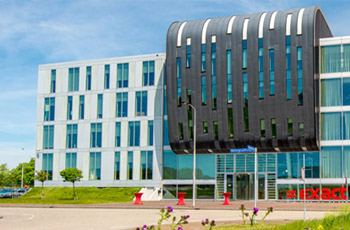News
Robotization and automation on the shop floor - HR in the lead

For many companies, technological innovations are becoming a reality. Internal and external developments have to be constantly assessed, anticipated and acted on. This drive for transformation will put companies under major pressure. How can HR stay ahead of the curve?
Change on the shop floor
From manufacturing staff to bookkeepers, technological developments will affect us all. If we believe the promise of robotisation, we’ll soon lose our jobs to machines. But in many industries, this is all mere speculation. And that makes it hard for companies to develop themselves into companies of the future.
Young and small businesses already work in more innovative ways: they use the latest technologies, employ a relatively high number of freelancers, encourage flexible working patterns and invest differently. This puts extra pressure on traditional corporate organisations to follow the same path.
The current labour market is increasingly flexible. On the one hand, companies are looking for fewer permanent contracts, and on the other hand employees are demanding more flexibility. The era of jobs for life is over. The average career now involves several changes of employer, role, competences and skill sets, with many people alternating between permanent contracts and freelancing projects. The skills you’ll need at 50 will be vastly different to those you learned at university or college.
Career paths are becoming increasingly unpredictable. Changing jobs no longer occurs within the context of a career. Work experience and seniority are being replaced by flexibility and changing competences. Employers expect flexibility from their staff. In its 2015 report, PWC described this as employagility: ‘the awareness or ability of organisations and employees to quickly be able to respond to changes and continue to add value.’ The manner and speed with which a company can respond to technological developments depends on the agility of its employees. It is the role of the employer to mobilise its personnel.
And this is what has to drive the HR agenda from now on.
The role of HR
HR departments can strategically add value by understanding the challenges companies face, knowing what to anticipate and what the company culture is and should be. It will have to replace its current role as service provider with that of advisor to management and employees. HR needs to identify which staff could be affected by automation, and create a culture in which work is subject to change. It has to stimulate discussions between supervisors and employees about the importance of additional- and retraining, so that the latter remains deployable. They have to emphasise that workspaces, competences and roles are no longer established facts, and that employees need to take control of their own personal development both at work and beyond. They must focus on long-term employability to be able to grow and change, allowing them to take ownership of their value for current employers and a good position in the labour market.
Automation of HR processes
It’s up to HR to make digitisation and technological innovation part of the company’s DNA. And that’s where the problem lies. HR departments generally don’t lead the way where digitisation, automation and technology are concerned, and are generally reactive to strategic issues. Look at the adoption of data and data analysis. There are few HR professionals who base strategic advice and decisions on data, while this may actually contribute significantly to the objectives of the company. Consider the value of predicting extra capacity in sales on the basis of turnover and projections, as opposed to recruiting only when the need is already there.
Does HR really want to play a leading role in transforming the organisation and facilitating a digital workplace? Then it needs to get its house in order and automate its own processes first.


